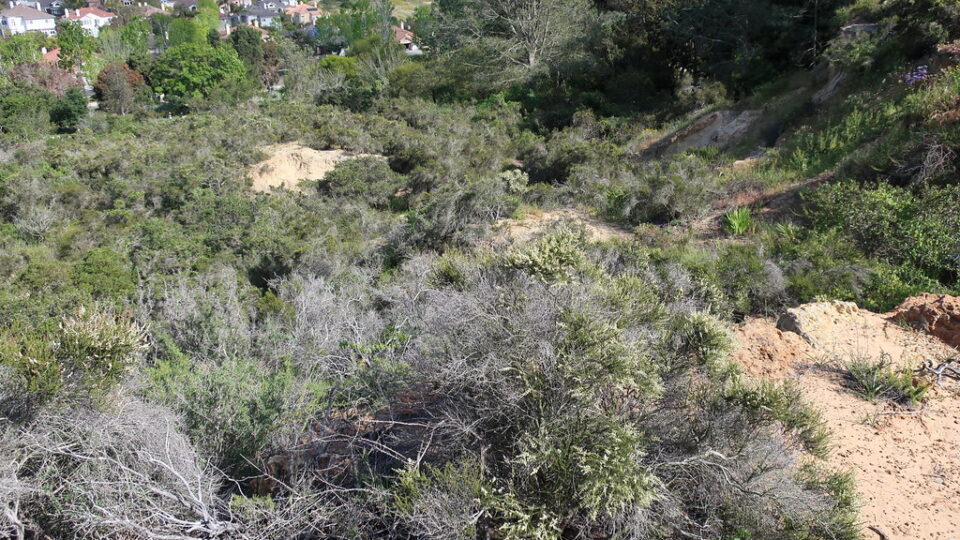ENCINITAS — Last month, the California State Coastal Conservancy approved a grant of up to $200,000 to San Diego Botanic Garden to enhance and restore more than half of Ocean Knoll Canyon, a section of the Cottonwood Creek Watershed in Encinitas.
The project’s 4.6 acres are adjacent to Ocean Knoll Elementary School of Encinitas Union School District. The canyon is a multi-benefit ecosystem, serving as a refuge for native plants and animals – some of which are endangered – in addition to holding significant potential value for educational opportunities.
“We couldn’t be more thrilled to improve native plant habitat at Ocean Knoll Elementary School’s Canyon,” said Ari Novy, the garden’s president and CEO. “The only thing we get more excited about than preserving plant life in our region is educating kids about our amazing flora. This project allows us to do both.”
Under the project, SDBG will remove high-water-intake and fire-volatile invasive plant species that have overgrown the canyon, as well as trash and debris. The plants that will be removed currently hamper biodiversity, reduce water availability and quality, and limit the adjacent school’s access to the habitat’s natural outdoor classroom. The Garden will replace these plants with native San Diegan coastal sage scrub plants that require less water and increase drainage capacity. Among the plants SDBG will use to revegetate the canyon are plants that increase carbon sequestration in the soil, naturally reduce the concentrations or toxic effects of environmental pollutants, and are more resilient than current plants to climate change.
These plants improve the condition and functionality of the surrounding environment, providing a refuge for native and special status plants and animals, such as the Del Mar Manzanita, a rare native shrub that grows in Southern California, and the coastal California gnatcatcher, a small non-migratory bird. The grant will also fund SDBG’s continued collection of seeds and support development of SDBG’s seed bank, which will conduct research to measure the seeds’ resiliency under various climate conditions. To promote growth of adaptable native species, the Garden intends to reintegrate plants that show the highest resiliency to climate change.
During the first phase of this project, the Garden will also work with local stakeholders to develop the framework for an outdoor educational and curricular program that integrates the project site. It will also place educational signage around the canyon. During a future phase of the project, SDBG will engage the local community to facilitate long-term maintenance and monitoring of the canyon. In the second phase, the Garden will also finalize and launch the eco-environmental education program in cooperation with the neighboring EUSD Farm Lab. EUSD intends to make the Ocean Knoll Canyon site available to all students and teachers in its nine elementary schools to learn about ecosystems, plants and animals. The school district plans to train teachers and invest in materials to create an outdoor ‘living laboratory’ in the canyon and surrounding areas.



